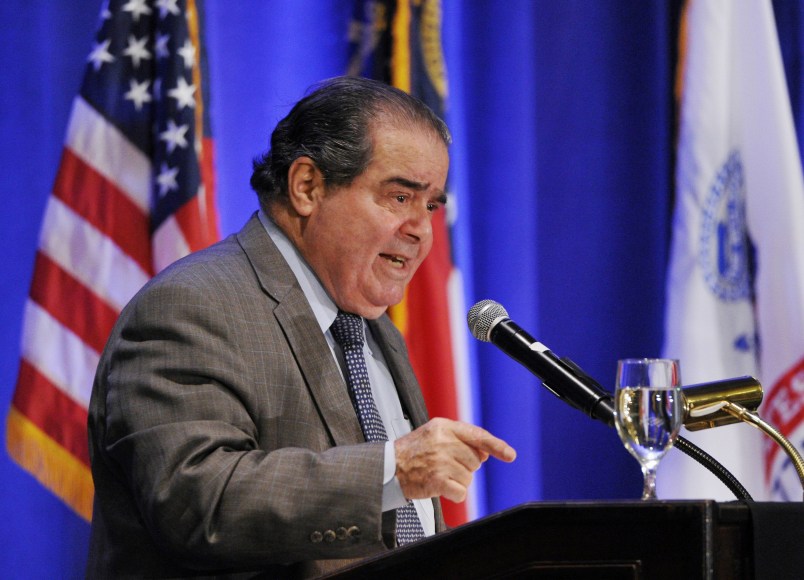Yet another federal judge has cited Justice Antonin Scalia in a decision striking down a gay marriage ban — this time in Florida.
In a ruling Wednesday declaring Florida’s ban on gay marriage unconstitutional, U.S. District Judge Robert L. Hinkle invoked Scalia’s scathing dissent against a 2003 Supreme Court ruling that outlawed bans on consensual same-sex sodomy.
The Reagan-appointed justice warned that the Court had effectively knocked down the legal basis for banning same-sex marriage by ruling that moral disapproval of gay behavior was insufficient to take away rights from gays.
Hinkle’s message: Scalia was right:
The difficulty for the defendants is that the Supreme Court has made clear that moral disapproval, standing alone, cannot sustain a provision of this kind. Windsor so indicates. Further, in Bowers v. Hardwick, 478 U.S. 186 (1986), the Court upheld a state law prohibiting sodomy, basing the decision on the state’s prerogative to make moral choices of this kind. But later, in Lawrence v. Texas, 539 U.S. 558 (2003), the Court revisited the issue, struck down a statute prohibiting gay sex, and expressly overruled Bowers. In his Lawrence dissent, Justice Scalia made precisely the point set out above—that a ban on same-sex marriage must stand or fall on the proposition that the state can enforce moral disapproval of the practice without violating the Fourteenth Amendment. Justice Scalia put it this way: “State laws against . . . same-sex marriage . . . are likewise sustainable only in light of Bowers’ validation of laws based on moral choices.” Lawrence, 539 U.S. at 590 (Scalia, J., dissenting).
(Emphasis added.)
Hinkle is the latest of many federal judges to ironically cite Scalia’s dissents from the 2003 case and the 2013 case, US v. Windsor, as harbingers of pro-gay-rights decisions to come.







Maybe we should refer to the rulings allowing same sex marriage as Scalia rulings.
It would be nice to know if Scalia is seething over these.
Scalia will get his chance again and this time Roberts will try to dragoon the court to find that Same sex marriages are illegal. 5-4. The order on the 4th circuit stay telegraphs his stance.
It’s a nice idea, but I wouldn’t want to give his reputation an unearned boost.
Let history remember him for the far-right bigot he is.
The only way this would piss him off more is if they misspelled his name to ‘Justice Scaly,’